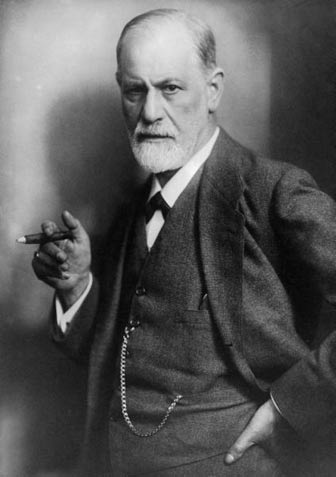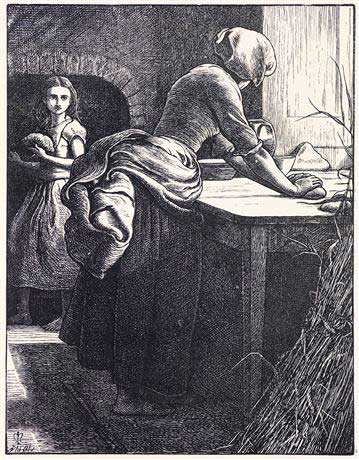|
What was most shocking about this scandal was not the number of
priests involved, though that is very high: ". . .the total number
of Catholic priests and deacons in the United States who have been
accused of sexual abuse of children is 4,392." (John Jay Report, 2.2
Summary results: Prevalence of Sexual Abuse of Youths Under 18 by
Catholic Priests and Deacons.) What was most shocking was the
response of the Catholic hierarchy to the allegations made against
these priests: they just moved them around, from one place to
another, presumably to avoid detection.
Or is that really all they did? Did they not rather follow, with
disastrous results, the best 'scientific' advice they could obtain
about how to deal with these men? If the latter, then why has there
been no calling to account for this catastrophic advice? The first
'expert' who failed the victims was Sigmund Freud. When he began
treating women who manifested hysteric symptoms in Vienna, these
women all told him the same story: 'I was raped by my father, or
step-father.' Had Sigmund Freud been more scientifically oriented,
he might have made the induction: there is a positive correlation
between a history of child sexual abuse and the manifestation of
hysteric symptoms. But he made the deliberate choice to disbelieve
their stories. In canonical Freudian psychology, when a woman says,
'I was raped by my father,' the analyst is supposed to interpret
this to mean: 'I fantasized that I had sex with my father.' This is
called the Electra Complex, and it's one of the pillars of that
system. She wants to be raped, but it never actually happened. So
the first offense by Freud against justice for victims of child
sexual molestation was this: A tendency to disbelieve the victim's story.
The second point is, unwarranted and unjustified sympathy for the
perpetrator over and above the victim, because he is 'sick.' The
analogy between sin and sickness is a very old one, in fact it's in
the Bible. It is a multi-faceted likeness; sin is really very much
like a sickness in many ways. Sin-sickness is progressive; when left
'untreated' it gets worse, until it ultimately destroys its victim.
So we read, "Is there no balm in Gilead; is there no physician
there? why then is not the health of the daughter of my people
recovered?" (Jeremiah 8:22), and "When Jesus heard it, he saith
unto them, They that are whole have no need of the physician, but
they that are sick: I came not to call the righteous, but sinners
to repentance." (Mark 2:17).
But there is one point at which this otherwise serviceable and
flexible analogy breaks down, and that is the one point which
accounts for its modern popularity: we don't blame sick people,
because 'it's not their fault.' Many categories of sex offenders,
including pedophiles, were reclassified as 'sick people' and
progressive-minded people thenceforward viewed them with sympathy
rather than anger or disgust. This was not the Christian temper
of forgiveness: it offered not pardon but exoneration, 'He
couldn't help it, he's sick, he needs help.' This was said about
rapists and pedophiles by people who felt they were showing how
'enlightened' they were by saying so, and this view of the matter
tended to drive sentences down. From the time Freudian psychology
took hold in this country in the 1920's, sentences for sex
crimes began to trend downwards. Many people even felt it was
barbaric and unenlightened to send these people to jail at all,
because they are 'sick' and they need to be 'treated.'
The third point is, ineffective proposals for cure. 'Quack' cures
can cause real harm when their futile pursuit prevents the sufferer
from seeking a real cure. People used to say, back in the hey-day of
Freudian psychotherapy, that if psychotherapy were a drug the FDA
would not let you sell it, because it was never able to demonstrate
any clinical efficacy in all the trials that were done. People who said
they valued 'science' nevertheless continued to believe in
Freudianism, though it had been proved ineffective! But the fact
that they had never once done so did not discourage the
psychotherapists from promising gullible customers that, yes, of
course they could cure pedophilia, just as successfully as they
cured all other mental disorders.
But they never actually cured anyone of anything; Freudian
psychotherapy was a 'quack' therapy in the purest sense. It prevailed
for decades, handing out one preposterous diagnosis after another. For
instance they used to tell schizophrenics, people with a very real and
very severe mental disorder, 'You had a schizophrenogenic mother, that
is why you are a schizophrenic:' "Their mother spent her entire life
believing that she had somehow caused his sister's illness. At the time a common theory
prevailed that 'schizophrenogenic mothers' — said to be over-protective,
or rejecting, or just 'toxic' — caused the disease."
(Kenneth Paul Rosenberg, Bedlam, p. 19) They
felt it was very important to get people to accept their story as to why
they were the way they were; this was part of the 'cure.' So if they
persuaded the schizophrenic that his mother had made him crazy, this was
a victory, a breakthrough. But it didn't make him any better.
Freudianism was not so much overthrown as it was by-passed, when the
pharmacists finally began to offer hope to sick people like
schizophrenics, by offering therapies that actually worked. The
Freudians had mocked the search for drug therapies as a hold-over from
the barbaric, backward past of their discipline. People had always
looked for drug therapies for mental illness, back from the time
the ancients prescribed hellebore. That approach turned out to be the
more promising, even 'modern' if you will; as well it had the added
benefit of not sentencing innocent bystanders to lives of guilt and
regret.
One of the things the Catholic hierarchy did in the U.S. was to
bring pedophile priests to an institute in New Mexico where they
received psychotherapy. Now people only refer to that as 'shuffling
them around,' because isn't it past being obvious that if you get a
pedophile to sit down and talk about his childhood, that isn't going
to stop him from molesting children? Since this therapeutic approach
yielded no results at all, it was just the same as moving people
around. Imagine if the Catholic hierarchy had been told: this is an
offense with an extremely high recidivism rate. There is no cure
known to the psychiatric profession. Though Roman Catholicism, a
hierarchical church, tends to over-value clergy over against laity,
I expect they would have acted differently if they had understood
these facts, and they are facts. But this is not what they were
being told by the men in white coats. They were told: 'We can cure
this.' This was pure quackery, and its victims are the children.
When Freudian psychotherapy was in vogue, its constituency was
not so much people with real psychiatric disorders, for whom it
offered nothing, but the 'worried well,' for whom it offered much the
same attractions and rewards as a religious cult. In fact it is
actually very difficult to distinguish Freudian psychotherapy from a
religious cult. Like Scientology, it claims to be 'science' or
'medicine,' but not because its insights were ever derived from any
research program. Rather their principles were derived from the
poetic and visionary insights of the founder. If you asked a
Freudian, 'How do you know that,' the answer was not a study some
researcher had conducted at some time, but a page number where the
master had said it. Yet the system greatly appealed to some people.
Much of Freud's vocabulary came from classical myth. He presented a
very dense and complex system of mythology, which took a long time
to learn, but after mastering it some people felt it added an extra
dimension to their experience of life. It was very 'deep.'
And so, in spite of the bizarre and degrading character of the
mythology, some people made it a code to live by. They even produced
the type of dream material that would appeal to their gurus: "There
is an old psychiatric saying: People who are in Freudian analysis
have Freudian dreams, people in Jungian analysis have Jungian
dreams, and people in Adlerian therapy have Adlerian dreams."
(Drawing Down the Moon, Margot Adler, p. 529). What resulted
were not beautiful lives, well lived, to say nothing of eternity.
However, in spite of the popularity of this system in academia
and in the mainstream media, a lot of people did not like it at
all. They responded with 'Harrumph.' And indeed you have to
wonder why the audience hearing this system expounded did not
burst out laughing. There was a big 'gross-out' and 'ick' factor,
because everything was referred back to childhood sexuality. To
Freudians repression was the original, and perhaps only, sin.
Many Christian folk did not like it for that reason. But the
Catholic hierarchy did like it, presumably because it was tinselly
bright, shiny and new. They bought it, and did what the Freudian
psychoanalysts told them to do with their pedophile priests, and
because nobody much believes in it any more, they look like they did
nothing.
Other churches have unwittingly sheltered child molesters; one thinks of
the brilliant gospel song-writer James Cleveland, who incomprehensibly
wrote beautiful music while his home life revolved around raping an under-age boy. Yet no other
church suffered a comparable metastasizing sickness spreading from locale to
locale. What was different about the Catholic church? There was a smoldering fire, a homosexual counter-culture within the Roman
Catholic priesthood, on which the 'modern, progressive' psychoanalysts who
were now running the show poured the gasoline of Freudian
psychoanalysis, with its tendency to foster narcissism and
myth-making in the 'patient,' who no longer thinks of himself as a
bad person, but as an immensely interesting one. In recent years the Catholic
Church has succeeded in turning the situation around, it would
appear, because the rates of child molestation have dwindled down
below the 'background' rate of the 1950's.
When the 'enlightened,' Freudian attitudes detailed above came
into prominence, the pedophile priest clique entered into their
Golden Age. To sum up: the 'enlightened' people, the men in white
coats, the 'experts,' after Freudianism hit town, tended to
disbelieve children's tales of sexual abuse. Freud's whole system
rested upon reconfiguring these stories as wished-for fantasies; it
is the child's sexuality which is being expressed by telling them,
not the abusive pedophile's. Many people,-- police, members of the
jury,-- still retained enough common sense to get convictions of
pedophiles in the courts, but they were swimming against the
'expert' tide. The Freudian 'experts' were the ones telling people,
'You should not believe these stories.'
Just imagine what would happen if some stray theory exploded in
popularity, which held as one of its tenets, 'Reports of stolen cars
are usually made up.' When you call the police and tell them your
car was stolen, they laugh in your face. Now to be sure, reports
of car theft are sometimes false, because 'victims' may be
committing insurance fraud, or may have forgotten where they
parked. But if you got a lot of people to disbelieve reports of
car theft, this would be the same thing as decriminalizing auto
theft. No one would believe you when you complained of it, so
nothing would be done. The pedophiles benefited from this. They
also benefited from the sympathetic tears the 'enlightened'
people shed on their behalf: 'They're sick, they can't help it,'
because even if the small-town police they ran into didn't care
what the white-coated 'expert' said, the offender would still
benefit from the trend toward lighter sentences that was going on
that whole while.
So the pedophile priests went to town. Maybe they even recruited
others into their group, because the times were very favorable
for them. The times ceased to be favorable when the
victims' voices were finally heard. Even in the godless world the
'sexual revolution' was beaten back at two fronts, by the victims
of child sexual abuse who explained that it meant, not
liberation, but a stolen childhood, and by the feminists who whacked
everyone on the head who expressed any sort of sympathy for a
rapist. I don't know how many of the accused priests bought into the
'sexual revolution,'— David 'Mo' Berg's Children of God cult caught that wave,
with predictable harm to children,— but the preceding course in Freudian psychology
had created the perfect storm. Just as auto theft rates
would spike if you convinced people not to believe owners filing
complaints, so the rates of this offense spiked when credence and
sympathy went over to the perpetrator rather than the victim.
Fortunately the pendulum has swung back the other way. The best
defense the Roman Catholic Church could have mounted was, not to
swing with the world's pendulum, but to cling to the solid rock, and
to make a stand on God's word, which certainly never taught
Freudianism. The Catholics, who believe in moral accountability,
have apologized; the Freudians, who do not, have not. There is
plenty of blame to go around for this tragedy, and it is difficult
to fathom why certain participants are Teflon-coated.

Reaction Formation
The paradigm of experimental science expects that investigators
will form a hypothesis which predicts a certain outcome, then look
to see whether what was predicted is what happened. But sometimes a
theory will come along which is so powerful that it predicts, either
a given outcome, or its opposite, or some third thing. This is
Freudian psychotherapy. The process which produces the opposite of
the original impulse, as predicted by Freudian theory, which process may or may not come into play, is called
"Reaction Formation." If the emotion or impulse originally produced
causes anxiety, the ego derails or sidetracks the offending impulse
by conjuring up its opposite. Say the original, anxiety-producing
impulse is 'hate;' the ego produces, by way of contrast, 'love' in
its place.
You thought I was kidding? This theory solemnly prognosticates,
either a.) Hate, or b.) the opposite of Hate, namely Love, or
c.) some third thing, like maybe Indifference. Predictions like
that, needless to say, are confirmed 100 per cent of the time.
|















